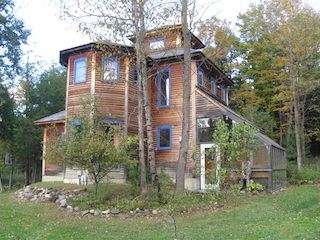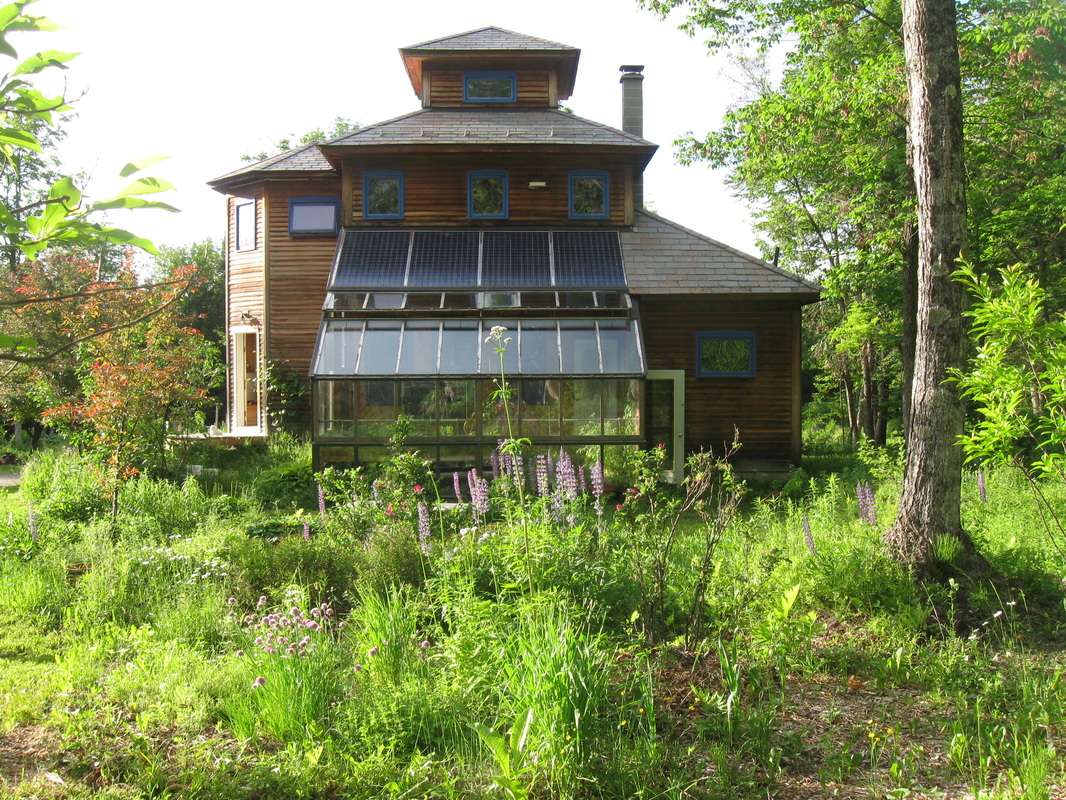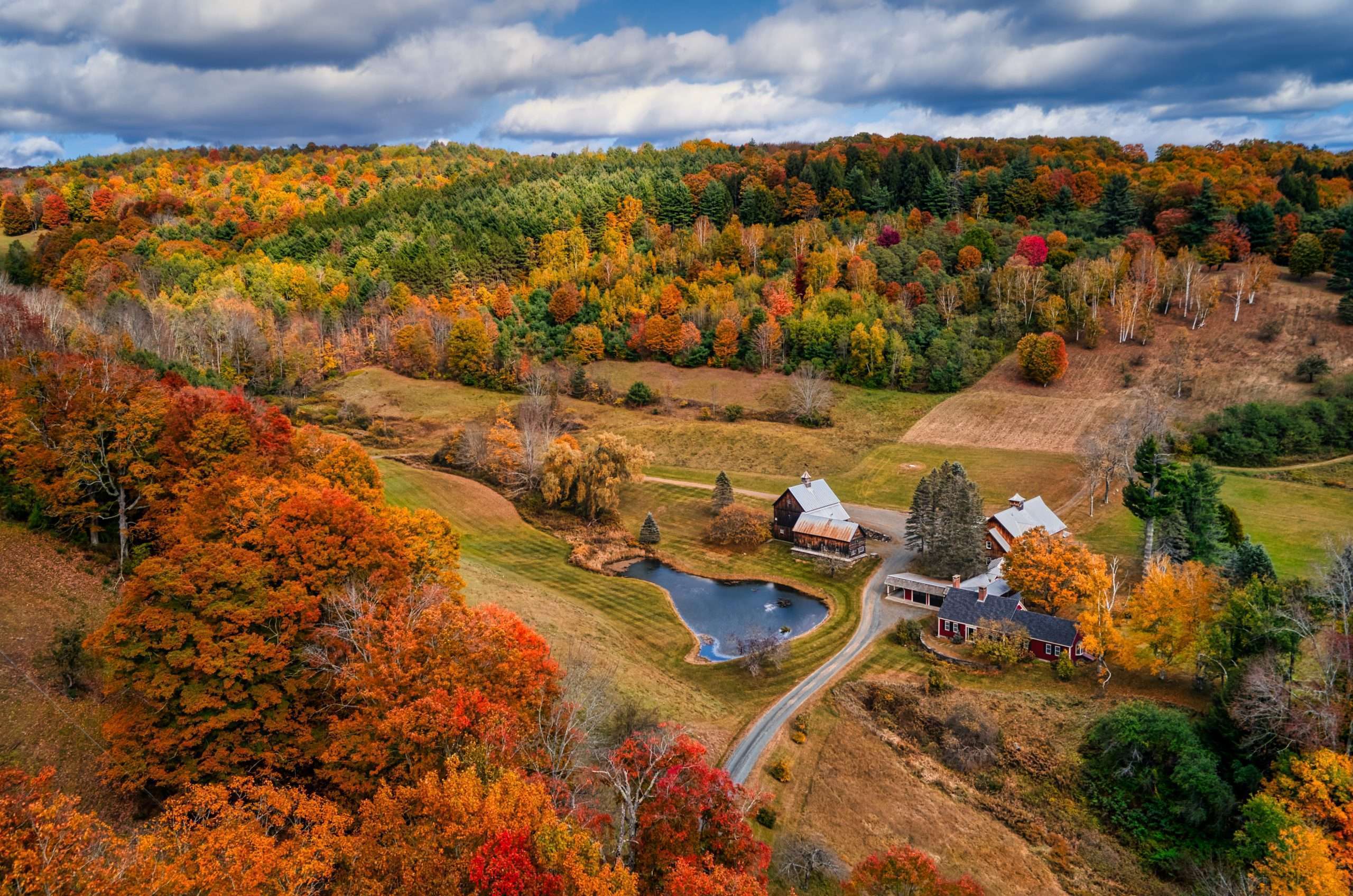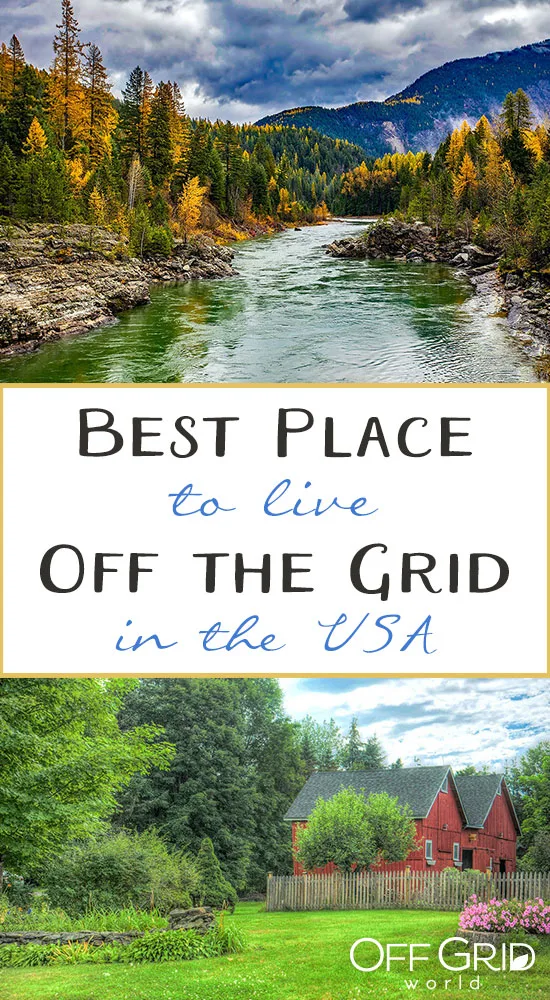Living Off-Grid in Vermont: A Desirable Location for Sustainable Living Imagine a place where you can disconnect from the hustle and bustle of modern life, live sustainably, and be surrounded by the tranquility of nature. Look no further than Vermont, a state that has become a haven for off-grid living enthusiasts. With its low population and a supportive environment for renewable energy, Vermont offers a unique opportunity to live independently from the grid. However, this idyllic lifestyle does come with its challenges, including high taxes and a harsh climate. In this article, we will explore the pros and cons of living off-grid in Vermont, from the benefits of solar and wind power incentives to the difficulties of heating during the frigid winters. So grab a cup of maple syrup-infused coffee and join us on this journey to uncover the allure and realities of living off-grid in the Green Mountain State.

Overview of Living Off-Grid in Vermont
Introduction to off-grid living
Living off-grid refers to a lifestyle where individuals or communities generate their own electricity and are not connected to the traditional electrical grid. This type of living can offer a sense of self-sufficiency and sustainability. Vermont, with its low population and abundant natural resources, is an ideal place for off-grid living.
Why Vermont is a desirable location for off-grid living
Vermont is considered a desirable location for off-grid living due to its low population and natural beauty. With no cities in the state having a population over 100,000, Vermont offers a sense of serenity and solitude that is often sought after by those looking to live off-grid. The state is also known for its picturesque landscapes, making it an appealing choice for those seeking a closer connection to nature.
Additionally, Vermont has a high percentage of renewable energy resources, including solar and wind power. This makes it easier for off-grid residents to harness these sustainable energy sources and reduce their carbon footprint. The state government also offers incentives and support for solar and wind power installations, making it even more attractive for those interested in off-grid living.
Legal and Incentives for Off-Grid Living in Vermont
Legality of off-grid living in Vermont
Living off-grid is fully legal in Vermont, as long as certain regulations are followed. The state requires all properties to have a wastewater system that complies with state standards, and there are guidelines for installing or constructing structures on the property. It is important to research and understand these regulations before beginning an off-grid lifestyle in Vermont.
Incentives for solar and wind power
Vermont is committed to promoting renewable energy, including solar and wind power. The state offers various incentives to encourage the installation of renewable energy systems. These incentives include grants, tax credits, and net metering programs that allow individuals to sell excess energy back to the grid. These incentives can significantly reduce the upfront costs of installing solar panels or wind turbines, making off-grid living more financially feasible for Vermont residents.

Challenges and Considerations
Cost of living off-grid in Vermont
While living off-grid can result in savings on monthly utility bills, there are upfront costs associated with setting up an off-grid system in Vermont. The initial investment for solar panels, wind turbines, batteries, and other equipment can be significant. Additionally, ongoing maintenance and occasional system upgrades can add to the overall cost.
Heating challenges and recommendations
Vermont’s harsh winters present unique challenges for off-grid living, especially when it comes to heating. It is crucial to have a reliable and efficient heating system in place to keep your home warm during the cold months. Reflective insulation can help maximize heat retention and reduce energy consumption. It is also recommended to invest in a backup heating source, such as a wood-burning stove, to ensure warmth in case of power outages.
Effects of Vermont’s harsh climate on off-grid living
Vermont’s climate can be challenging for off-grid living. The state experiences heavy snowfall and low temperatures during the winter months, which can impact access to resources and utilities. It is important to be prepared for severe weather conditions and have a plan in place to ensure you have enough food, water, and supplies during harsh winters. Additionally, regular maintenance and weatherproofing of off-grid systems are essential to withstand the rough climate and prevent any damage.
Vermont’s Unique Qualities for Sustainable Living
Low population and community-oriented living
Vermont’s low population contributes to a strong sense of community, making it an ideal place for sustainable living. Many off-grid communities in Vermont have a cooperative spirit, with members supporting each other in various ways. This sense of community fosters opportunities for sharing resources, knowledge, and skills, making sustainable living more accessible and enjoyable.
Maple syrup production and local resources
Vermont is renowned for its maple syrup production, and many off-grid residents take advantage of this local resource. Maple syrup can be used as a sustainable sweetener, reducing the reliance on processed sugars. Additionally, Vermont’s rural landscape provides ample opportunities for growing food, raising livestock, and accessing natural resources sustainably. The abundance of local resources further promotes self-sufficiency and sustainable living.
Impact of natural disasters on off-grid living
Vermont is not immune to natural disasters, such as floods, blizzards, and tornadoes. These events can have a significant impact on off-grid living, disrupting access to resources and utilities. It is crucial for off-grid residents to have emergency preparedness plans in place to ensure their safety and well-being during such situations. This can include having alternative power sources, storing extra food and water, and maintaining communication devices for emergencies.

Accessibility for Off-Grid Living
Roadway access in Vermont
Vermont generally has good roadway access, making it easier for off-grid residents to commute and access essential services. Most rural areas have well-maintained roads, allowing for easy transportation of supplies and resources. However, it is important to note that remote off-grid properties may have limited access during severe weather conditions. It is advisable to consider the accessibility of a property before committing to off-grid living in Vermont.
Winter challenges and road conditions
Winters in Vermont can be particularly challenging, with heavy snowfall and icy road conditions. This can impact road access for off-grid residents, especially in more remote areas. It is essential to have a reliable vehicle with good traction and to be prepared for winter emergencies such as getting stuck in snow. Keeping an eye on weather forecasts and staying proactive in winter maintenance, such as snow removal and ice clearing, can help mitigate some of the challenges associated with winter off-grid living in Vermont.
Property and Cost Considerations
Property prices in Vermont
Property prices in Vermont are generally 12% lower than the national average, making it a relatively affordable state for off-grid living. However, the cost of land can vary depending on the location and size of the property. It is recommended to research and compare prices in different areas of Vermont to find an off-grid property that suits your budget and requirements.
Property taxes in Vermont
While property prices may be lower in Vermont, property taxes in the state tend to be higher than the national average. This is an important consideration for off-grid residents, as property taxes can significantly impact the overall cost of living. It is advisable to budget for property taxes and factor them in when calculating the total expenses of off-grid living in Vermont.
Cost of living in Vermont
The cost of living in Vermont is somewhat cheaper than the national average, thanks to lower housing costs and a general commitment to sustainability. However, it is important to consider that certain expenses, such as healthcare and utilities, may be higher due to the state’s rural nature. Additionally, high taxes in Vermont can increase overall expenses. It is recommended to create a comprehensive budget and consider all aspects of the cost of living before transitioning to an off-grid lifestyle in Vermont.

Quality of Life and Safety in Vermont
Low unemployment rate in Vermont
Vermont boasts a low unemployment rate, which contributes to a higher quality of life for its residents. This is particularly advantageous for those seeking off-grid living, as it provides opportunities for self-employment and entrepreneurship. The state’s strong emphasis on local businesses and sustainable practices further supports the off-grid lifestyle and enhances the quality of life for Vermont residents.
Low crime rate in Vermont
Vermont has consistently ranked among the states with the lowest crime rates in the United States. This creates a safe and secure environment for off-grid living, offering peace of mind and tranquility. The state’s close-knit communities and general respect for privacy contribute to a sense of safety and well-being.
Benefits of living in a safe and peaceful environment
Living off-grid in Vermont’s safe and peaceful environment can have numerous benefits for individuals and families. The close connection to nature, lower stress levels, and opportunities for self-sufficiency can improve mental health and overall well-being. Furthermore, the sense of community and support from like-minded individuals can enhance the quality of life and provide a strong support system for off-grid residents.
Sustainable Living Practices in Vermont
Eco-friendly practices in off-grid living
Living off-grid inherently promotes eco-friendly practices, as it encourages self-sufficiency and reduces reliance on conventional energy sources. Off-grid residents in Vermont often prioritize energy conservation, recycling, and minimizing waste generation. They also focus on sustainable agriculture, composting, and rainwater harvesting to minimize their environmental impact. These eco-friendly practices contribute to the overall sustainability of off-grid living in Vermont.
Local initiatives and organizations promoting sustainable living in Vermont
Vermont is home to numerous organizations and initiatives that actively promote sustainable living. These include community gardens, farmers markets, and renewable energy cooperatives. The state government also encourages sustainable practices through various programs and incentives. Off-grid residents in Vermont can benefit from these initiatives by accessing resources, knowledge, and support to further enhance their sustainable lifestyle.
In conclusion, living off-grid in Vermont offers a unique opportunity to embrace self-sufficiency, sustainability, and a closer connection to nature. With its low population, abundant natural resources, and supportive community, Vermont provides an ideal environment for off-grid living. However, it is important to consider the challenges of harsh weather conditions, upfront costs, and high property taxes. By carefully considering these factors and embracing sustainable practices, individuals and families can create a fulfilling and eco-friendly off-grid lifestyle in the beautiful state of Vermont.





